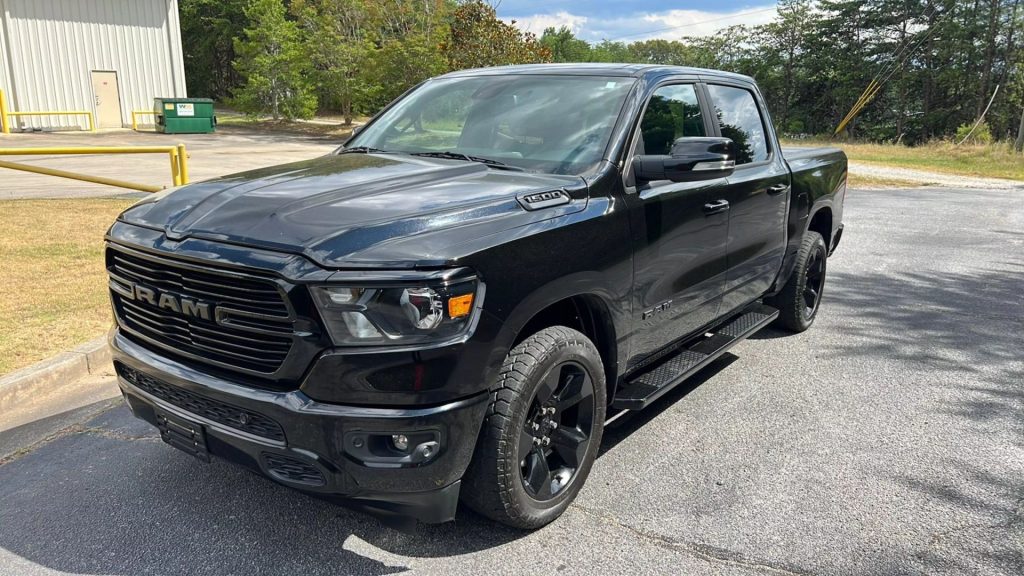Purchasing a used truck combines cost savings with the promise of dependable performance, making it a popular choice for both personal and commercial use. Whether you need a workhorse for job sites or a practical vehicle for everyday tasks, the right used truck can serve you faithfully—if you know how to choose wisely. For buyers in Central Texas, exploring custom pickup trucks for sale Kyle can offer a wide variety of options tailored to specialized needs. However, sorting through the choices requires careful planning and informed decision-making to avoid surprises down the road.
Understanding what to look for in a used truck will protect your investment and ensure satisfaction with your purchase. With countless makes, models, and configurations on the market, following a structured selection process makes all the difference. From aligning the vehicle’s capacity with your intended use to reviewing its service records, each step is crucial to finding a reliable truck. Starting your search with practical knowledge will help you find a car that suits your lifestyle’s demands.
What’s more, the used truck market offers access to higher-end trims, better features, and premium accessories at friendlier prices compared to new vehicles. However, the wrong choice—failing to assess condition, reliability, and true ownership costs—can quickly negate those savings. Fortunately, by focusing on a few key priorities and relying on expert resources, such as Consumer Reports, you can confidently navigate the buying process.
Keep in mind that well-maintained used trucks hold their value and provide years of utility, especially when chosen thoughtfully. A detailed inspection, verification of vehicle history, and evaluation of the cost of ownership are pivotal components of a smart investment in a used truck.
Assess Your Needs
Before you even step onto a lot or check local listings, clarify how you’ll use your truck. Will it be a daily commuter, a weekend adventure vehicle, or will it haul equipment and supplies on work sites? Determine whether you need a compact, mid-size, or full-size pickup, and consider the number of passengers, storage requirements, and desired technology features. A one-size-fits-all approach doesn’t apply—your requirements should steer the way.
Research Reliable Models
Model reliability can make or break your ownership experience. Ford, Toyota, and Chevrolet often top reliability lists, but specific years and trims can impact performance. Supplement your research with professional reviews and consumer feedback from reputable sites, such as Kelley Blue Book. Look for trucks with consistently high marks in durability, ease of maintenance, and owner satisfaction to minimize your risk of unexpected repairs or breakdowns.
Inspect Vehicle Condition
Exterior and Frame
Start by walking around the truck and inspecting the body panels for signs of rust, dents, or mismatched paint, which can indicate previous accidents or subpar repairs. Check underneath for corrosion, especially in areas where salt is used on winter roads, as frame rust can dramatically shorten a vehicle’s lifespan.
Engine and Transmission
Look for signs of leaks and worn belts, and check the oil and transmission fluid for proper levels and color. Engines that run rough, emit smoke, or make unusual noises should be carefully evaluated by a mechanic before purchase. Be wary if the check engine light remains illuminated during startup.
Suspension and Tires
Test drive the truck to assess handling and ride comfort, and note any pulling, vibrations, or abnormal sounds. Uneven tire wear can indicate misaligned wheels, worn suspension components, or underlying frame issues.
Verify Towing and Payload Capacities
Determine the gross vehicle weight rating (GVWR) and towing capacity for the specific year, engine, and configuration you are considering. These figures are typically found in the owner’s manual or on the manufacturer’s website. Overestimating or underestimating your needs could lead to costly mistakes or limit the versatility of your truck.
Consider Fuel Efficiency
Pickup trucks are not famous for their fuel economy, but there are still notable differences across models and engine types. Smaller engines and newer models typically offer improved fuel efficiency. Balance your need for power with expected driving distances to keep running costs manageable, and compare EPA mileage estimates to avoid surprises at the pump.
Review Maintenance History
Request comprehensive maintenance records to review how well the truck’s previous owner cared for it. Regular oil changes, brake inspections, and transmission servicing indicate responsible ownership. Trucks with extensive maintenance histories, especially those documented by authorized shops, will likely have longer, trouble-free lives.
Evaluate Cost of Ownership
Your investment extends beyond the sticker price. Calculate ongoing costs such as insurance premiums, routine maintenance, and the likelihood of repairs, especially for trucks with higher mileage. Some manufacturers, such as Toyota, are known for their lower repair costs and greater long-term value, while others may require pricier parts or specialized service.
Conclusion
Selecting the ideal used truck is a process that blends clear-eyed self-assessment with careful research and hands-on evaluation. By narrowing your choices based on your needs and leveraging information from reliable sources and trusted dealers, you greatly improve your chances of making a rewarding and practical investment. A thorough approach ensures you drive away in a truck that delivers reliability, capability, and value for years to come.
